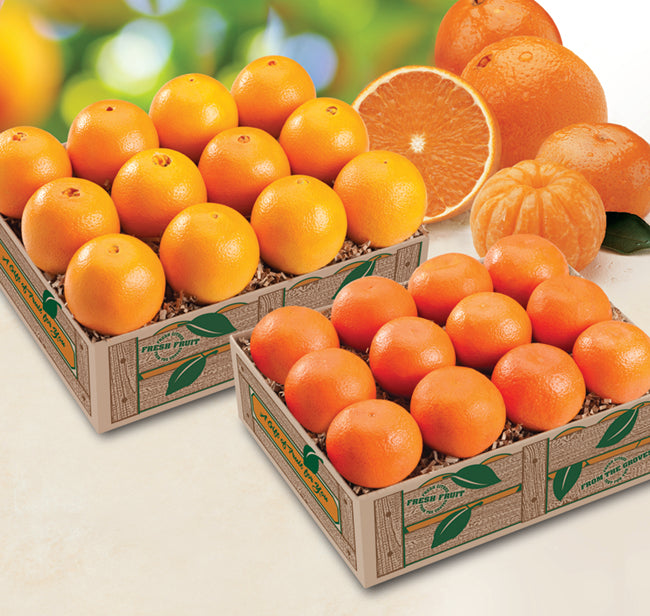The cultivation and production of oranges play a crucial role in Florida's economy, contributing billions of dollars annually. The citrus industry supports thousands of jobs, from grove workers and harvesters to processing plant employees and distributors. This economic activity helps sustain rural communities and provides a significant source of income for many Floridians.
Commercial cultivation ramped up in the 194's and 1950's. This was the golden age of the Florida citrus industry. In fact, in 1952 an estimated 72 million boxes of Florida citrus was produced! By comparison, in 2024 approximately 7 million boxes of Florida citrus shipped.
Florida's oranges are also a major export product, with large quantities shipped to markets across the United States and around the world. The state's reputation for producing high-quality, flavorful oranges has made them a sought-after commodity, boosting Florida's profile in the global agricultural market. This international demand further underscores the importance of citrus to the state's economic well-being.
Beyond direct economic contributions, the citrus industry in Florida also has a cultural and historical significance. Orange groves are a symbol of the state’s heritage, and citrus festivals and events celebrate this rich history. These activities attract tourists, providing additional economic benefits through spending on lodging, dining, and other local businesses.
Sustainable Farming Practices for Florida Citrus

Sustainability is becoming increasingly important in the cultivation of Florida oranges. Farmers are adopting environmentally friendly practices to ensure the long-term health of their groves and the surrounding ecosystems. One such practice is the use of integrated pest management (IPM), which combines biological and cultural methods to control pests in an eco-friendly manner. By reducing reliance on pesticides, IPM helps protect both the environment and human health.
Many may be familiar with “Greening”, a disease that first appeared in Florida in 2005, spread by the Asian citrus psyllid. It is identified by symptoms like yellow shoots, asymmetric leaf mottling, sparse foliage, and oddly shaped fruit. During the first years of infection into our crop land, Florida’s ability to meet the high demand for our quality citrus was severely affected. But recent bio-friendly solutions like CUPS farming (Citrus Under Protective Screens) has helped the Florida gift fruit industry increase production levels. The CUPS technique involves individual tree tenting as well as tenting large acreages of trees to block the pests from contact with the trees. Read more about solutions to greening at floridacitrus.org.
Soil health is also a focus, with many growers using no till farming, cover crops and organic mulches to enhance soil fertility and structure. These practices improve water retention, reduce erosion, and promote beneficial microbial activity in the soil. By maintaining healthy soils, farmers can ensure that their orange trees receive the nutrients they need to produce high-quality fruit while also protecting the environment.


